Mikaela is exactly who the NDIS should be supporting. So why has it left her ‘stranded’?
Sixteen-year-old Mikaela Williams has quadriplegia. But the effort of learning to get on her feet and scoot around with assistance in a walker is nothing compared to navigating the NDIS.
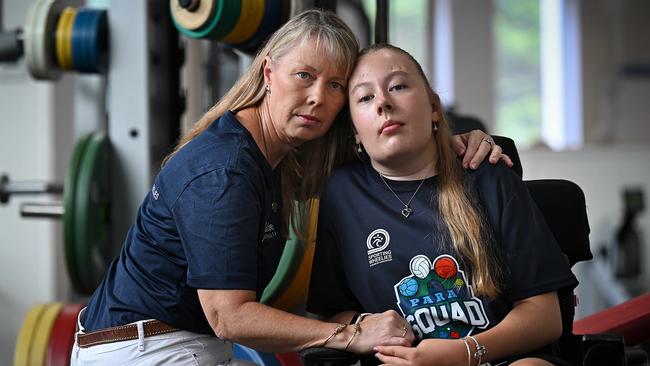
Mikaela Williams is a fighter. Born with a rare congenital malformation of her cervical spine that rendered her quadriplegic, the 16-year-old’s extraordinary tenacity has driven her to achieve feats of mobility and wheelchair sporting prowess that few could have predicted. But the enormous effort of learning to get on her feet and scoot around with assistance in a walker was nothing compared to navigating the NDIS.
“They’ve just been super strict, depriving us of basic things they deem not reasonable and necessary and making us provide evidence over and over again,” says Mikaela. “I suppose it makes me feel insulted, because they don’t know who they’re dealing with. You never get to talk to anyone, and so they don’t understand the complexity of my disability and how much support I need. They think I don’t need the help.
“Being a 16-year-old who can’t look after themselves, and being deprived of help with everyday necessities, being deprived of the ability to get up out of bed and just do the basics, it’s really sad, I’d say it’s disgusting,” Mikaela says. “People like me who truly need the NDIS are left stranded.”
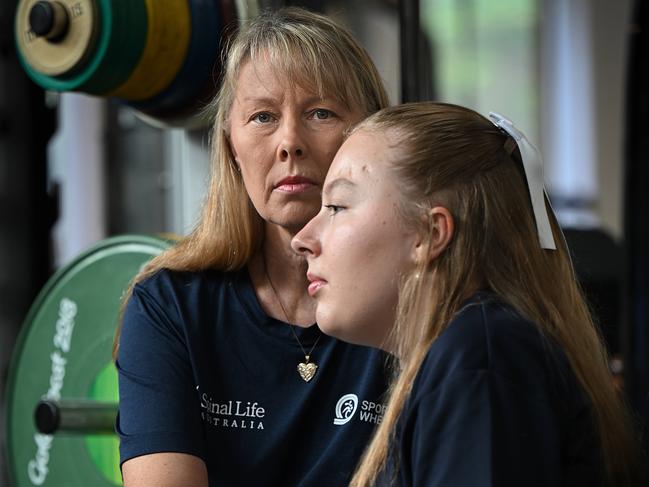
Mikaela and her mother, Louise, have been locked in a battle to increase the 16-year-old’s support for daily living for the past 15 months. Mikaela is completely dependent on others for almost everything, including toileting, showering, dressing, rolling throughout the night, transferring from her wheelchair, preparing meals and cutting up her food at mealtimes. She currently has NDIS funding for assistance with daily life only on school days, for six hours, and nothing outside school hours or on school holidays.
Louise, who is a single mum, has been Mikaela’s main carer in the absence of any formal supports for years. She is now experiencing health problems and is not able to cope with the increasingly strenuous and exhausting task of caring for her now adult-sized daughter.
Mikaela’s spinal cord is 50 per cent compressed at the C1 and C2 vertebrae, the highest spinal level injury possible. Mikaela is lucky to be alive – most who have an injury at this level of the spine would be expected to be in hospital on a ventilator.
Yet the National Disability Insurance Agency has dragged the family through a 15-month battle for basic supports that has left them feeling that the NDIS is a deeply dysfunctional agency staffed by faceless bureaucrats who routinely ignore the clear evidence of clinicians and fail to comprehend the nature of participants’ disability.
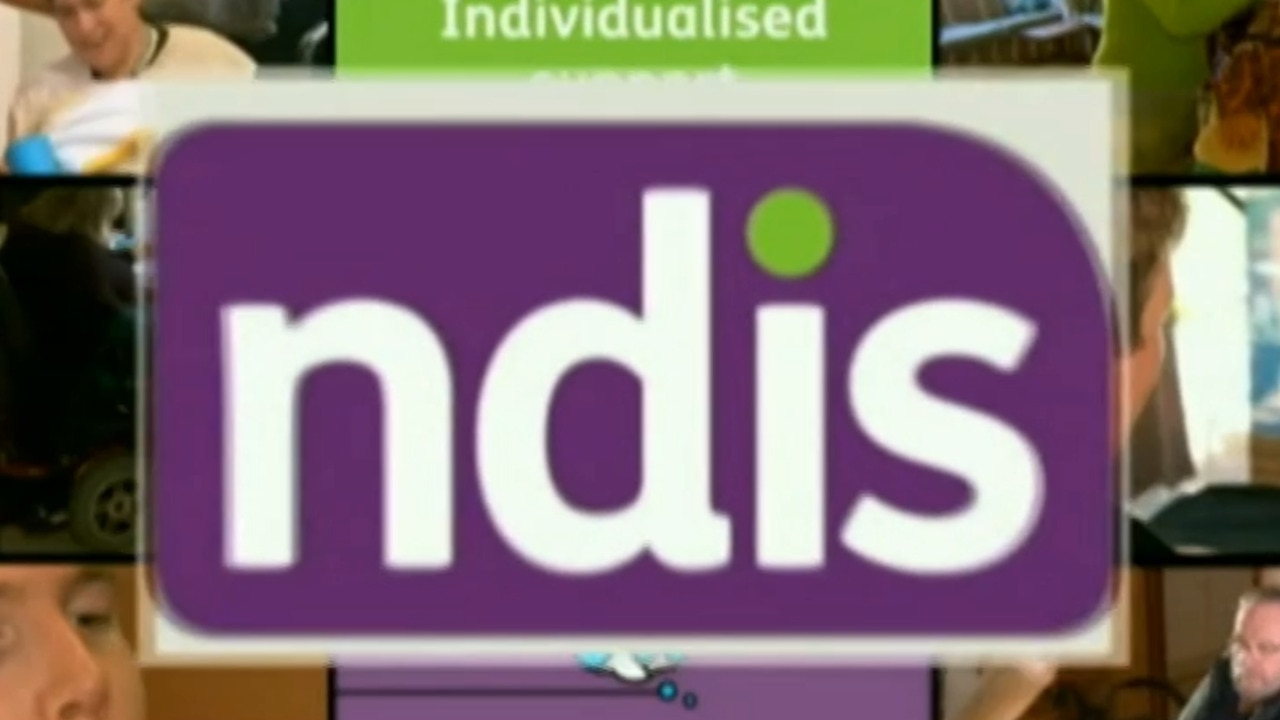
It’s a view that is now widespread across the disability community, and one shared by service provider Spinal Life Australia chief executive Mark Townend, who is supporting clients in similar situations to Mikaela. The organisation believes that people with severe disabilities are copping the brunt of government mismanagement of the scheme.
“We have people that can’t get out of bed because for months and months, because the NDIA just takes time to make decisions, and quite often, after a big fight and lots of hassling and advocating, they agree they should have made the decision back in the beginning,” Mr Townend says.
“The NDIS is broken. It’s a machine with broken cogs. When you’ve got people who are lying in bed in their faeces waiting for decisions on care, there’s something wrong with the system.
“Particularly spinal cord injury, it’s really obvious what their disability is. Just bloody improve the care for them so they can get out of bed; give a bit of respite to the families who are struggling.”
The NDIA says it cannot comment on Mikaela’s case as it is currently under review by a tribunal.
“The NDIA’s priority is ensuring participants, including Mikaela, receive the disability-related supports they require as determined under the NDIS Act,” says a spokesman for the agency.
The NDIS Participant Service Guarantee sets clear timeframes for decision-making by the agency, but performance against these benchmarks has deteriorated sharply in recent years.
On one of the main performance measures relating to making a decision on access to the NDIS, the timeframe of 21 days was only met 19 per cent of the time in the September 2024 quarter. A benchmark on approving plans was only met 49 per cent of the time, down from 93 per cent the year before. Despite this, the NDIA says it has “made considerable progress over the past year in reducing wait times for participants, even as the NDIS continues to grow. The agency is now making more decisions than ever before”.
Spinal Life Australia is calling for reform to the NDIS to address delays being widely experienced. It says it has witnessed an unprecedented number of people seeking help reviewing decisions or reporting delays of up to two years for decisions on critical supports such as personal care, nursing services, vehicle modifications, and housing modifications.
In some cases the delays have resulted in people going without essential supports or running out of funding entirely while they wait many months for decisions.
Despite being quadriplegic, Mikaela is one of those who has faced a long struggle to convince the NDIA that she needs the help of a support worker. Despite an occupational therapy report – commissioned at the cost of $10,000 that was paid for out of her package – which found that Mikaela was classified as the highest level of “severe” on the caregiver burden scale and required 14 hours of care a day, seven days a week, the agency rejected the evidence.
They currently offer Mikaela funding for supports during school days, and are now offering six hours a day and evening showers twice a week. That leaves her mother, Louise, unable to work more than two days a week.
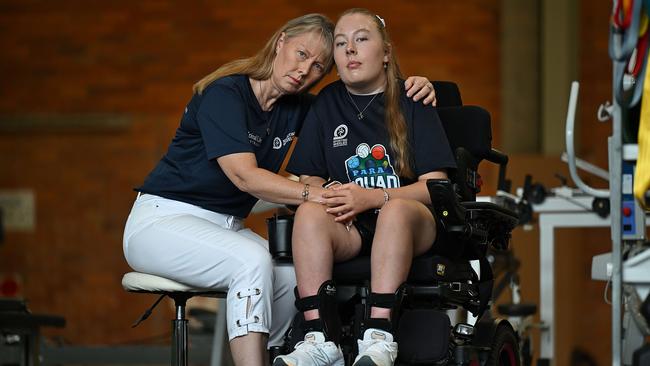
The dispute began when Louise had to have surgery, which rendered her virtually immobile for three months. She lodged a change of circumstances form and requested additional supports. What occurred then is a scenario that is increasingly a common story: the entire plan went up for review and the NDIA began demanding evidence for other supports that had been delivered for years. The agency flagged its intentions to withdraw all continence funding for Mikaela, until a comprehensive continence assessment was supplied.
“This is insulting and degrading to someone with quadriplegia; it is a critical health necessity,” says Louise. “Mikaela is highly susceptible to UTIs as a result of her disability and requires the use of numerous different continence products daily. Removing it from her plan with no warning was inhumane and unacceptable.”
This is a common story with those who challenge NDIA decisions, and a common reason why many never review dubious decisions in the first place. The stories of plans being decimated after a participant makes a challenge are widespread.
Louise has now decided to pursue a challenge to the rejection of Mikaela’s extra daily living supports through the Administrative Appeals Tribunal. It’s left her exhausted on two fronts – the burden of caring for her daughter alone combined with fighting a faceless bureaucracy.
“I’m up through the night with her to roll her, I don’t actually ever get a full night’s sleep,” says Louise. “There’s no respite. I’ve got nowhere to turn.
“I urgently need support worker hours for Mikaela. None of the employees at the NDIA do their homework. They come back with questions or responses that indicate they fundamentally do not understand the participants’ disability.
‘I guess all I can say to them in future is, ‘can you please try and understand a little bit about the disability?’”




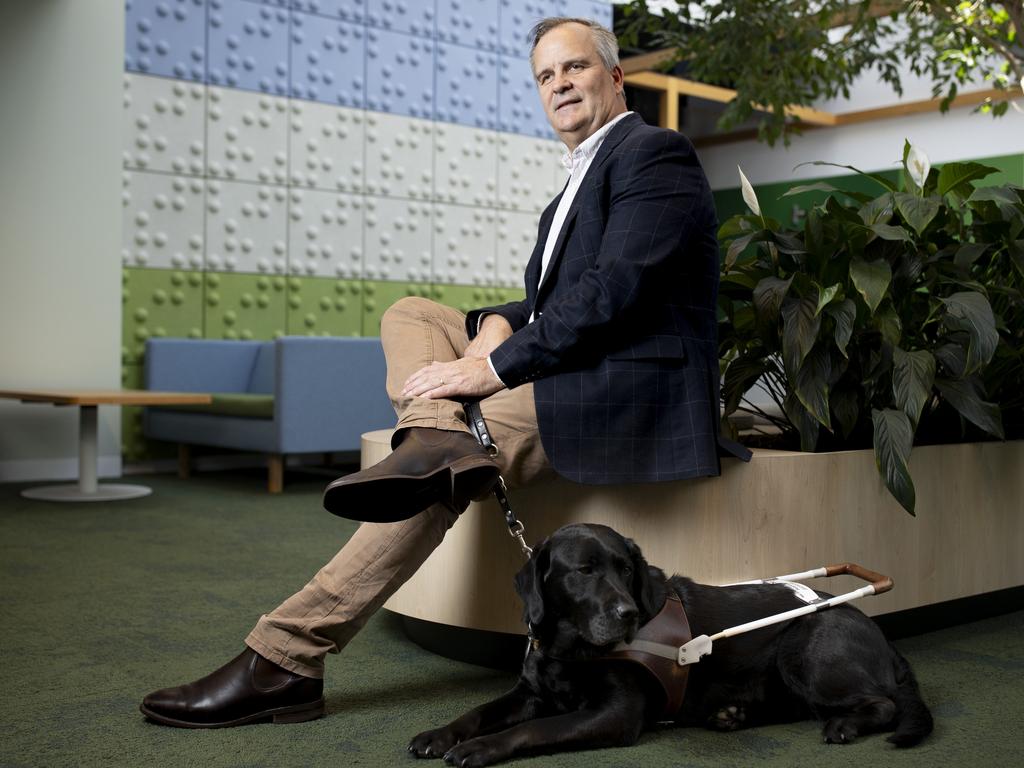
To join the conversation, please log in. Don't have an account? Register
Join the conversation, you are commenting as Logout